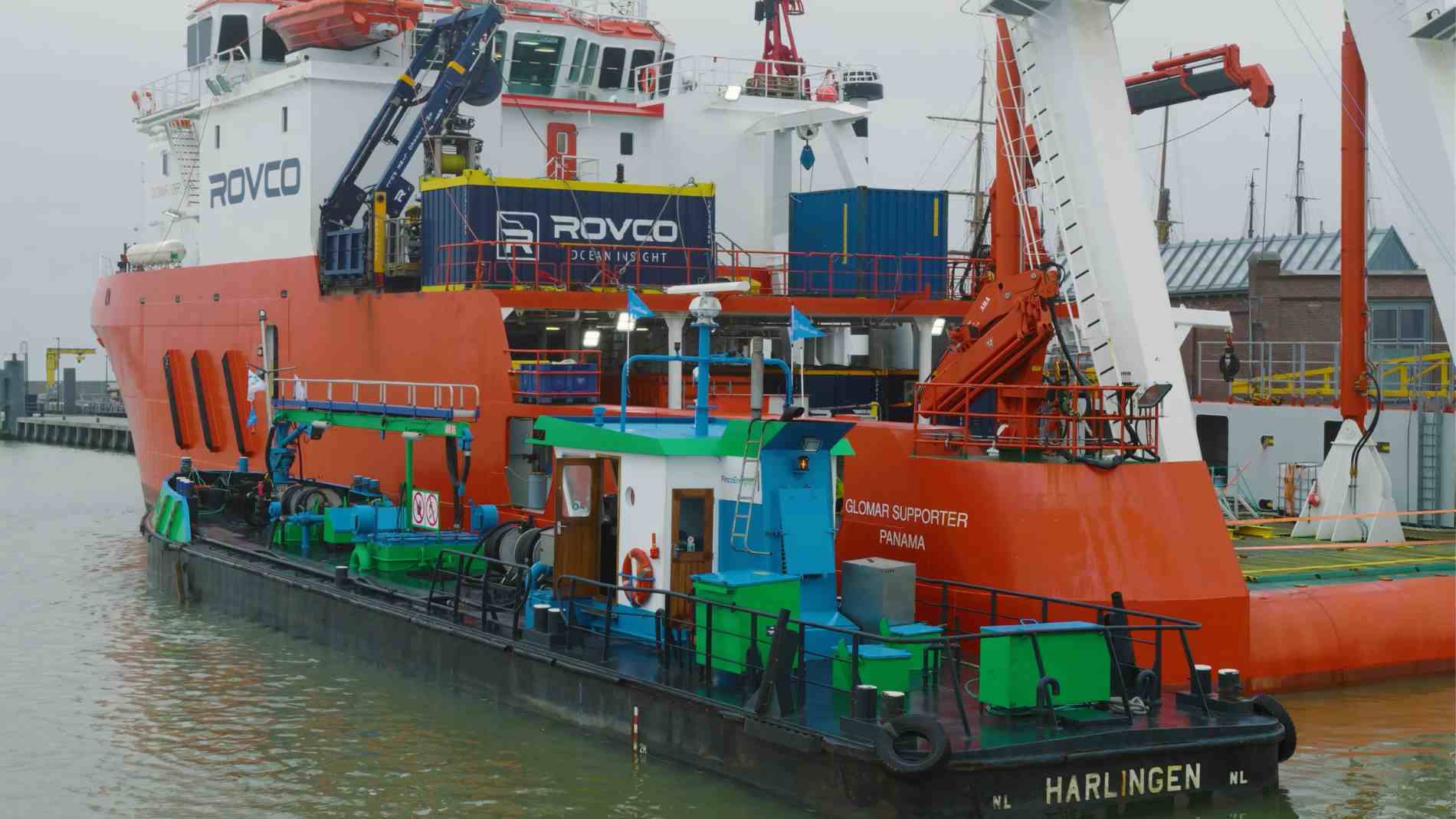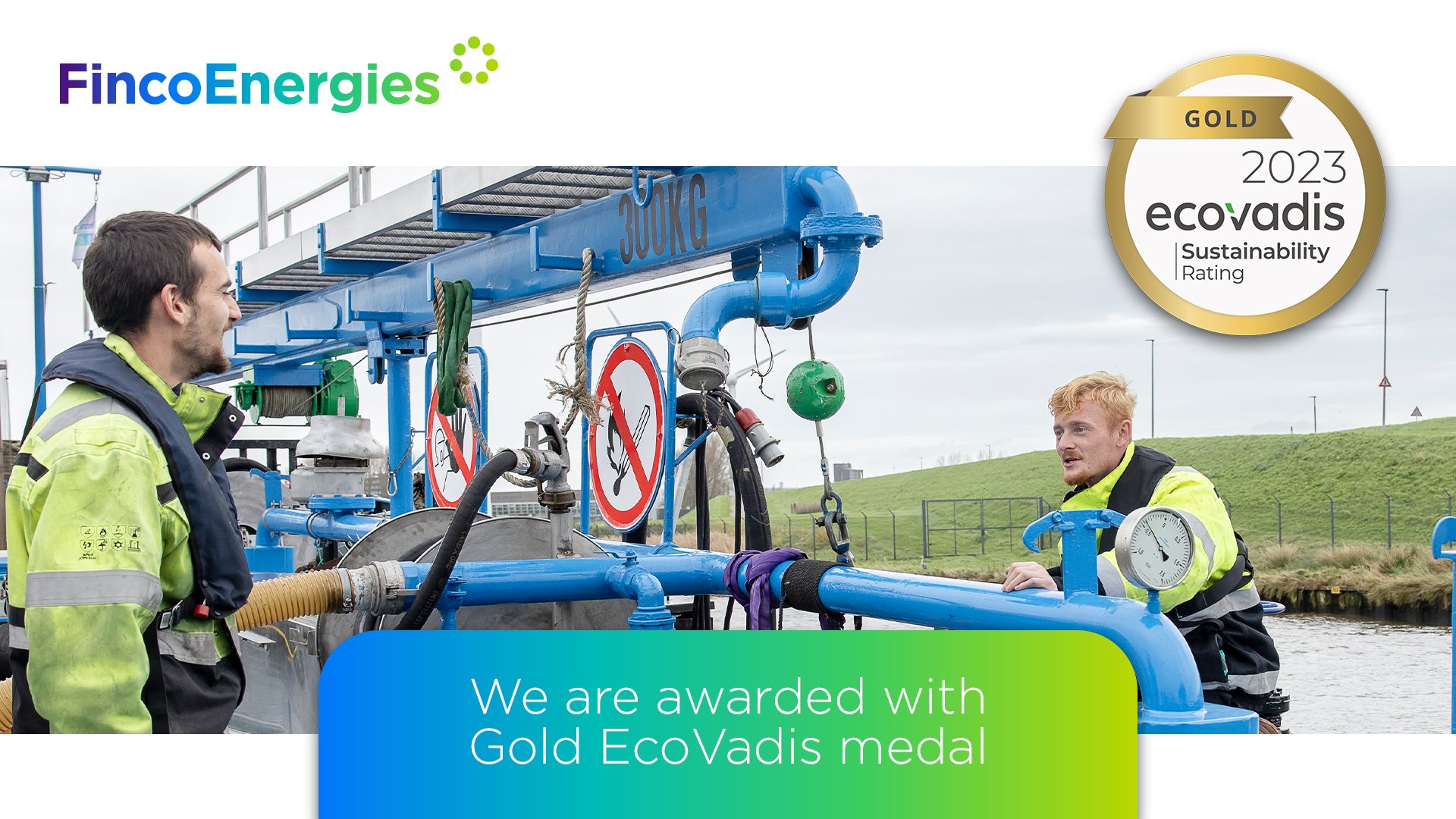How Peterson and the SNSPOOL is Charting a Course to Net-Zero Emissions with FincoEnergies
%20(1).png)
.png)
Peterson, a global service provider of (offshore) logistics, advisory, technology, and training leverages FincoEnergies’ technical expertise to fuel its net-zero journey.
Peterson's path to net-zero
Peterson recognises the responsibility to continuously improve its corporate sustainability performance. Peterson Den Helder’s shore activities achieved CO2 neutrality in 2022 and the company is developing a roadmap to achieve net-zero emissions in its operations. It recognises the importance of fuelling within its ambitions.
To meet its sustainability targets, Peterson was looking for a partner with technical expertise and a data-driven approach to decarbonisation. The first successful delivery of this sustainable alternative to fossil fuels took place in January and has resulted in an additional 28% reduction in CO2 emissions.

Peterson's decarbonisation journey with FincoEnergies
The partnership with FincoEnergies began over a decade ago. In the past months, the collaboration has focused on reducing emissions through operational enhancements like optimising vessel speeds & voyage planning, using enzyme-doped fuels, switching to biofuels, and data-driven solutions. In 2023 alone, the collaboration between FincoEnergies and Peterson has resulted in a CO2 emission reduction of 4.392.181 kg.
“Our long-term vision is to become net-zero, and FincoEnergies is our partner in this journey. Their experts are always there to assist if you have any questions or issues. This is what distinguishes FincoEnergies from others – they are not just fuel suppliers; they are a decarbonisation partner you can rely on.” - adds Reinier.
The SNSPOOL with Peterson as facilitator installed sensors on its vessels to monitor real-time data, optimising speeds from ten miles per hour to 8.2 knots and cutting fuel consumption by 10%.
Further analysis led to a shift from operator-based to geographic clustering in voyage planning, achieving an extra 7% fuel reduction. The data is also used to forecast the operability of the vessels offshore with the use of machine learning models and monitoring the hull resistance of the vessels.
Fueling change: transition to GoodFuels biofuels
Continuing Peterson's commitment to fleet efficiency and environmental performance, FincoEnergies has supported the company's transition to biofuels with several GoodFuels biofuels. In 2019, Peterson incorporated the ChangeXL additive, a fuel improver based on XBEE enzyme technology.
The switch was tested over 1,500 hours with FincoEnergies experts, using millions of data samples. It resulted in a significant 13% reduction in fuel consumption during dynamic positioning operations and a consistent 10% decrease across various voyages.
In November 2023, Peterson started using the GoodFuels HVO20 blend for some SNSPOOL customers, thus achieving a CO2 emission reduction of 31% by February 2024. This roughly accounts for 5100 MT of CO2 reduction year-over-year.
“We are proud to support Peterson’s ambitious journey towards net-zero. This collaboration underscores the vital role our customers play in our shared mission to build a better tomorrow. Using our team's technical expertise, we are excited to help Peterson advance their decarbonisation efforts, including transitioning to higher concentration biofuel blends such as GoodFuels HVO40, in the coming years.” says Jeroen van Essen, Commercial Director at FincoEnergies

Overcoming obstacles in green transition
One of the initial hurdles Peterson faced was persuading various stakeholders—from vessel owners to partners—that reducing carbon emissions does not only offer environmental benefits, but also economic advantages, primarily through reduced fuel consumption and consequent cost savings.
Reflecting on Peterson’s journey, Reinier highlights the following learnings: "Take small steps to ensure everyone is onboard; rushing might lead you to lose key stakeholders. Start by exploring what improvements can already be made within your own organisation. Once those internal enhancements are in place, you can then confidently extend your efforts to sustainable and alternative fuel sources. Always remember, effective change begins in-house before branching out."
Charting the future: Peterson’s roadmap
Over the next two to five years, Peterson, together with FincoEnergies, plans to increase their use of GoodFuels blends, particularly shifting towards higher concentrations like HVO40. Transitioning to 100% biofuel involves adopting entirely new types of vessels, prompting the company to explore dual fuel solutions, especially methanol-operated supply vessels. These discussions aim to operate vessels that comply with future standards and are future-proofed to last another 10 to 15 years.

News & blog posts

News | FincoEnergies | 07-05-2024
How Peterson and the SNSPOOL is Charting a Course to Net-Zero Emissions with FincoEnergies
Read this story
News | FincoEnergies | 01-05-2024
Climate-neutral mobility by 2050: How can we get there?
Read this story
News | FincoEnergies | 22-02-2024
FincoEnergies empowers Glomar Offshore's decarbonisation journey with GoodFuels HVO30
Read this story
News | FincoEnergies | 31-01-2024
FincoEnergies has received EcoVadis Gold medal for sustainability performance
Read this story
Ready to explore
more?
more?


